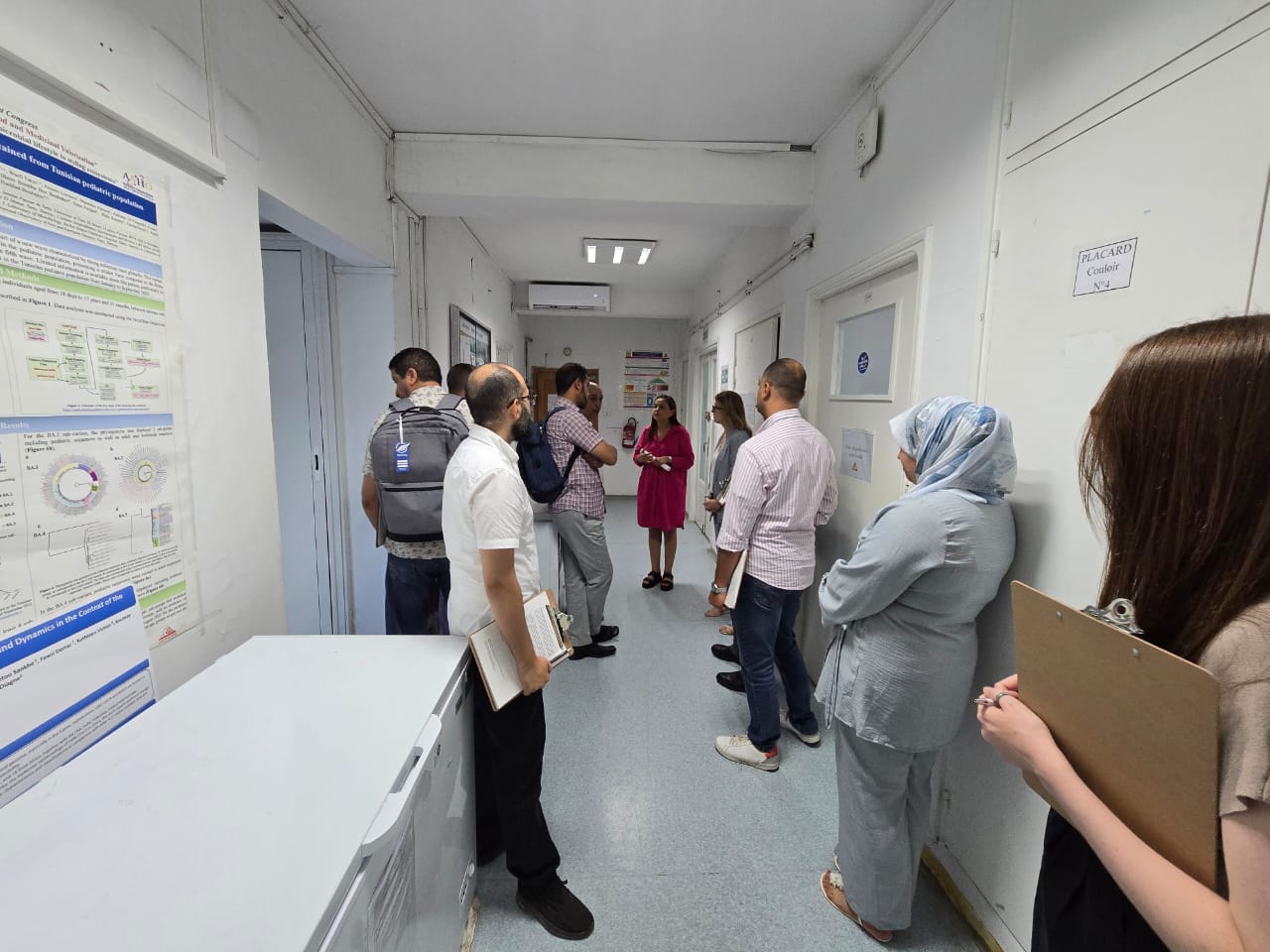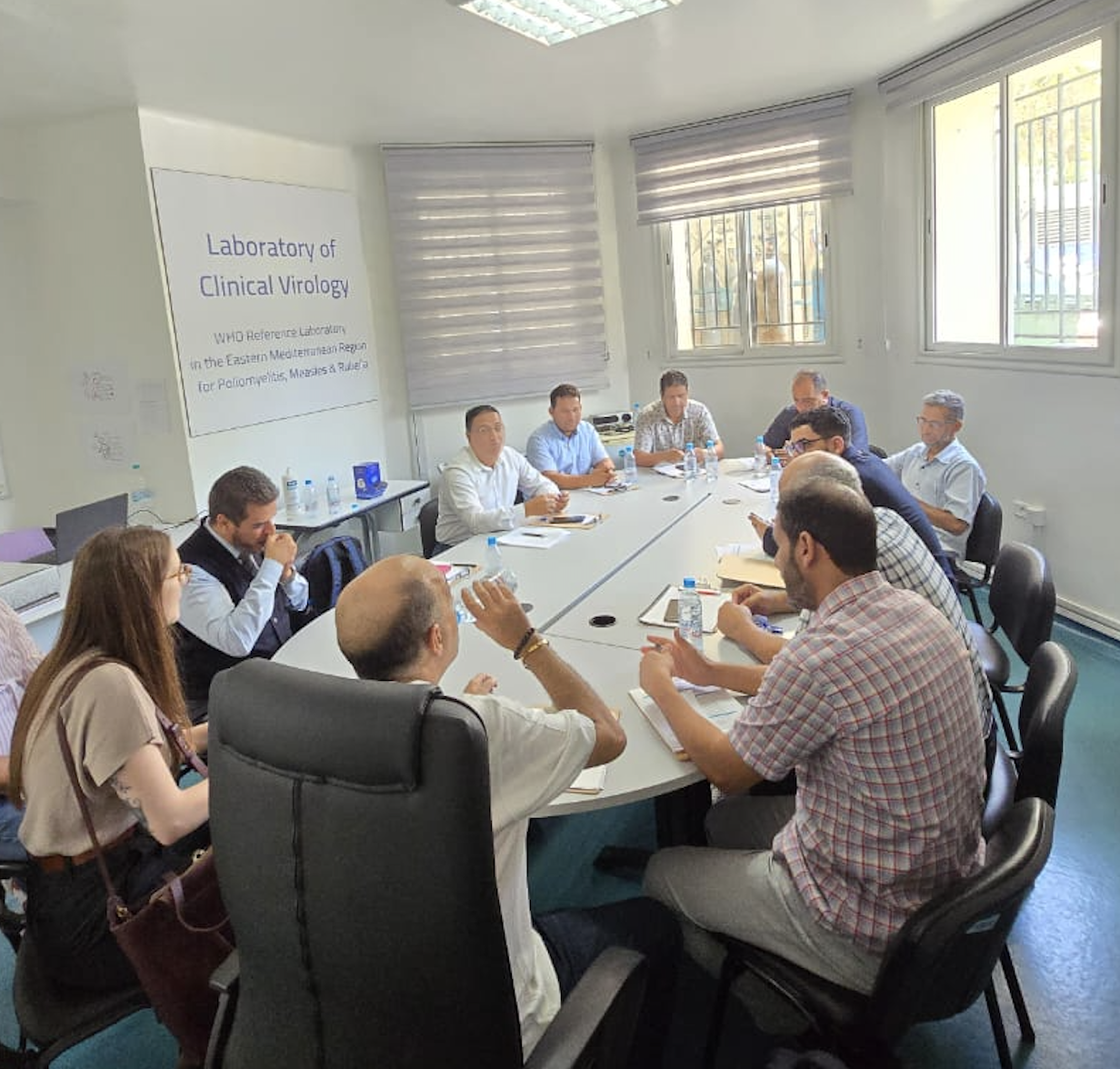Equipping auditors with the skills to assess high-risk laboratory environments across Libya.
On September 23-24, 2024, Health Security Partners (HSP), in collaboration with the Libyan National Committee for Biosafety and Bioethics (LNCBB), hosted a two-day training program aimed at equipping auditors with the skills to assess high-risk laboratory environments across Libya. On Day 1, Participants from across Libya received in-depth training on the draft Libyan Security Sensitive Biological Agents (SSBA) guidelines and audit protocols. These guidelines are crucial for safeguarding laboratories handling sensitive pathogens. Auditors reviewed their responsibilities and prepared for a mock audit. On Day 2, the cohort visited the Pasteur Institute of Tunis, WHO’s regional reference lab for Polio, Measles, and Rubella, to conduct a mock audit. The participants gained valuable experience with the SSBA checklist, focusing on key lab safety areas such as layout, containment, and security measures. In the afternoon, the group reconvened to discuss critical issues like the shortage of biosafety cabinet certifiers in Libya, brainstorming solutions to enhance safety and security. A special thanks to the Libyan National Committee for Biosafety and Bioethics (LNCBB), thePasteur Institute of Tunis, and U.S. Department of State, Biosecurity Engagement Program [https://www.linkedin.com/company/state-isn], for their invaluable support in making this training a success. Together, we’re building a safer future with laboratory biosafety and biosecurity in the region!


Next Article Previous Article
